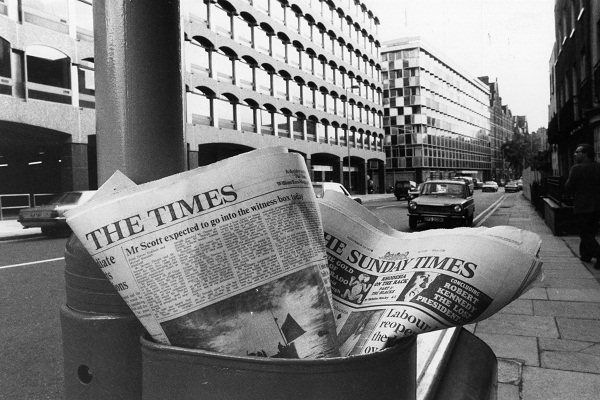Free speech in Britain is being pulled in two completely opposite directions. On the one hand, thanks to the increasingly tortuous mission-creep that is the Leveson Inquiry, there are a range of demands for greater regulation of the print press. Today’s rather surprising letter to the Guardian by various Conservative MPs is an example of some thinking on this.
What is odd is that this should happen at exactly the same moment when the internet is pulling us in an opposite direction. It is all very well to come up with ever more labyrinthine ways in which to keep the print-media in line, but this increasingly looks like advocating temperance to a person who enjoys a glass of wine with their meals, whilst an alcoholic rampages through the same room. Just consider the last 24 hours.
If you search the internet you can find the names of Conservatives and Labour figures alleged to have committed paedophilic crimes. Yesterday a television presenter used the fact that you can find these names on the internet as a reason to put some names to the Prime Minister on a live television programme. Last night this fact itself became the news. Today one of the people alleged to have been named has issued a very vigorous denial of the claims.
This seems to me an important point in the current debate on press freedom. For all of its failings, the print media does aim to school people in the research and verifying of stories. People get things wrong, certainly, but few newspapers will run stories with absolutely no basis in fact. What authority the press possesses comes from this fact. But the internet is different and, as was shown yesterday, we still have no idea of how to deal with it.
On the one hand the internet and social media networks have the free-speech-enhancing ability to get around such outrages as super-injunctions and (partly) our wildly unbalanced libel laws. But on the other hand it also has the ability to set off nationwide alarm on the false basis that an allegation, if repeated often enough, must have some element of truth. Yet truth is not the plural of allegation. The print media used to know this and tried to keep it in mind much of the time. There were always ‘open rumours’ in the media of course, ‘known’ by people and repeated, yet also known not to have the legs to stand up as a story. The web has little or no such conception and can just run the open rumour.
It seems to me that alongside losing our ability to print and say what we think we are losing our ability to tell the difference between truth and rumour. This is not a healthy pile-up of troubles.







Comments